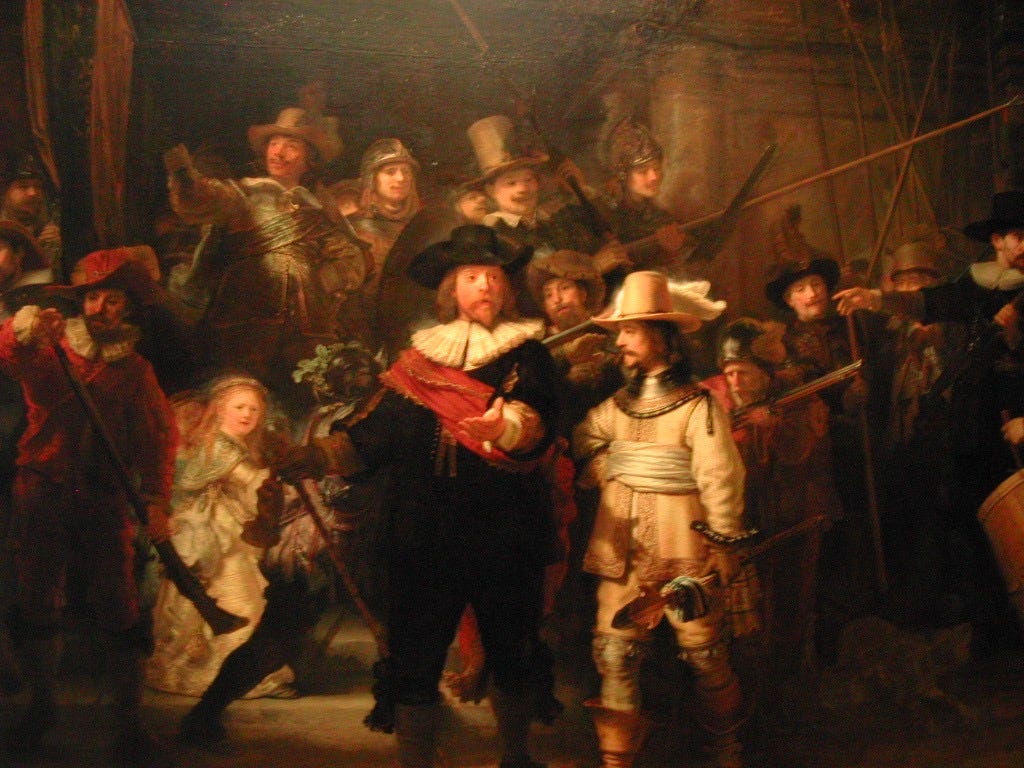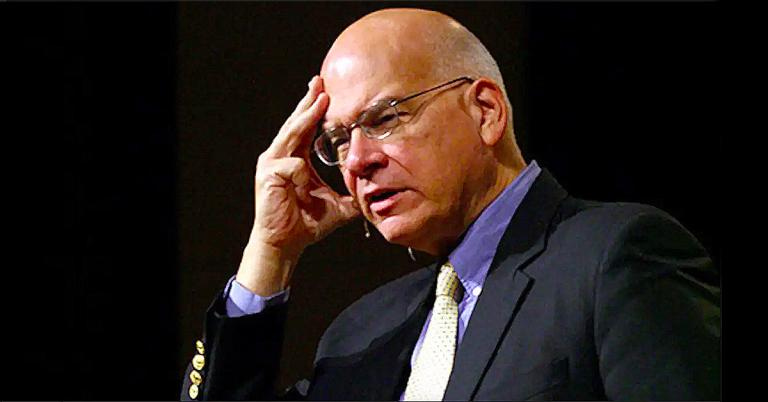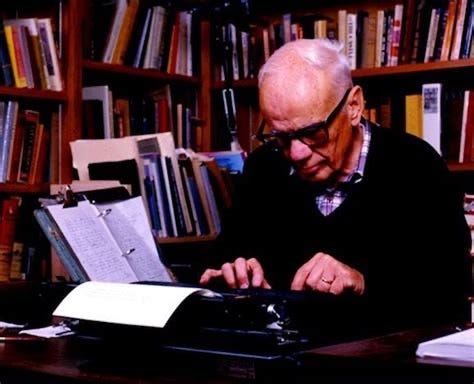Archetypes of Christian Shepherding
A Memorial and a Message on the Ascension Day Passing of The Rev’d Drs Harry Reeder and Tim Keller

Within 24 hours, the Body of Christ lost two formidable flagbearers of Gospel truth. The Rev. Dr. Harry Reeder (1948-2023), pastor of Briarwood Presbyterian Church (PCA), Birmingham, died in a tragic car crash on Thursday morning, 18 May 2023, Ascension Day. The Rev. Dr. Tim Keller (1950-1923), pastor emeritus and founder of Redeemer Presbyterian Church (PCA), NYC, died on Friday morning from pancreatic cancer. Their passing reminds us of this life's relative brevity and seeming uncertainty. Yet, their providential departures might signal even more reflections on this Lord's Day after the Ascension.
Christian Unity
Harry and Tim gave Gospel shade from the harmful rays of an unmerciful scorching light, once filtered by a protective atmosphere of Christendom, yet, now, without such protection. Their teaching—Harry's focus on revitalizing the things that remain and Tim's on church planting movements in strategic metropolitan centers of influence—was compatible and effective. Their approach, we might say, their expressions of ministry were distinctive. Harry Reeder was a traditional Southern Presbyterian minister who equipped the saints for ministry while working for biblical truth in the culture. His message gave hope to the many who felt they did not recognize their country. Tim was a Northeastern Presbyterian minister focused on biblical witness amid a diverse melting pot, where strategies for transformation were much different than the South and the Heartland.
Nevertheless, both men were ordained ministers in the conservative and evangelical Presbyterian Church in America(PCA) [I am also ordained in the PCA]. Both Harry and Tim were not only Christian shepherds but also evangelists. Such dynamic consequential leaders invariably find that their messages, if not their very image, become a rallying point for followers (often more Harry than Harry and more Tim than Tim). Once, I was with Tim Keller at his office in New York (a make-shift space little more than a slightly modified broom closet). He spoke with that distinctive Tim Keller way that unfailingly caused you to think for days about what he uttered in minutes: "Mike, the thing that disappoints me is when church planters in, say, Smallville, Iowa, listen to me preach, or hear me teach about the ministry in Manhattan, and try to just duplicate one over there. Of course, it doesn't work! I'm concerned that other ministers see our relative success and lay a NYC ministry template over their city. They need to locate and appropriate the principles that can be applied, not photocopied." So, what do you want other ministers to take away from your work at Redeemer-NYC?" Tim hesitantly replied, "The universal Gospel strategies for their city!" Those who listened to Tim Keller's sermons or conference addresses without critical thinking and theological reflection for locating the biblical truth and hard-earned wisdom to apply to their respective communities missed Keller's approach. Likewise, Harry never sought to copy the chromosomes of one church, e.g., Briarwood, and duplicate them in another. Instead, through "From Embers to Flame," Harry sought to isolate and appropriate biblical revitalization principles to other unique Christian communities. And therein lies the key for each of us to receive and use. So, consider the essence of each key.
We are Like Forged Steel and Cast Steel
Here is what I mean. One key that unlocks the door to faith and new life that brings spiritual strength and congregational vitality looks different from another key because each is fashioned to accomplish distinct missions among a particular people. One key may be of the style forged. Forged steel is made by heating the substance to a highly red-hot condition. While malleable, the blacksmith strikes the glowing garnet metal with a special hammer until he secures the desired shape. One produces cast steel by subjecting the metal to so hot a temperature that the properties dissolve into molten steel. The firey steel "lava" is poured into a mould. When cooled, the cast steel hardens into the preordained shape of the mould. Forged steel is best used for heavy-duty projects. Forged steel is strong and suited for the most demanding uses, like machine parts. However, forged steel is not as valuable for specific other applications. Cast steel doesn't crack like forged steel and, thus, may be used for more elegant designs, e.g., fittings and oversized products. Yet, both are resilient in their respective applications.
For those within the Presbyterian and Reformed evangelical traditions, we know there were differences between Harry and Tim. And it was more than Tim's urbane demeanor clothed in a dark tweed jacket and charcoal turtleneck. Harry was different than Tim, but it wasn't just a courtly Southern Façon de parler dressed in seersucker and white bucks. One was forged for a specific task in the Kingdom. The other was cast for a unique role. Sometimes when we identify the needs of our situations with forged steel, we think cast steel is wrong. Cast steel users feel the same as the forged steel builders. Yet, both metals are steel. They are one. Each serves to support the function for which it was fashioned.
Christian leaders are not only active architects of ministry. Leaders invariably become passive archetypes for ministry. That is to say that others invest their ideals and project their preferences onto the person and create their ideological figurehead. And so it was with Harry Reeder and Tim Keller and those who identified with one or the other. This is innocuous enough except when it isn't. It almost always isn't. And it almost always ends up with petitioners and protest signs, "Forged Steel is the real deal!" Or, "Cast steel users are unqualified losers!" I don't know (or care) who is cast or forged in my illustration. I know this: Mercifully, Tim and Harry would never have allowed such protests under their respective banners. However, "I'm with Apollo" or "I am with Paul" is a perennial pickle in the Church:
"For while one saith, I am of Paul; and another, I am of Apollos; are ye not carnal Who then is Paul, and who is Apollos, but ministers by whom ye believed, even as the Lord gave to every man? I have planted, Apollos watered; but God gave the increase. So then neither is he that planteth any thing, neither he that watereth; but God that giveth the increase" (1 Corinthians 3:4-7 AV).
As the Lord received these two archetypes of our preferences within the passing of a day, maybe, in this case, a short notice can engender a long view. The writer of the popular Tuesdays with Morrie said, "Maybe death is the great equalizer, the one big thing that can finally make strangers shed a tear for one another." The fiftieth anniversary of the Presbyterian Church in America will come and go without the two most notable archetypes for the often competing movements within her. Perhaps, as we mourn our loss of Harry and Tim, the Lord calls us (in our leveling time) to esteem others higher than ourselves. Maybe, forged steel and cast steel are both just steel, after all. To be clear, the metaphor reaches its end with death. For they are not steel, just dust—glorious, divinely fashioned dust—but earth nevertheless. And that composite is the one that humbles us: People need the Lord. We need each other.
And that leads me to another thought. I hope I can state it without any more diversions or meandering.
“God is Gone Up” (Ascension Day music by the The Choir of St. John's College Cambridge).Gerald Finzi [1901-1956] English composer).
We are All Looking for Signposts in a Strange Land
Signposts in a Strange Land was Walker Percy's last book. Published posthumously, each of Percy's essays stands alone, yet one can discern a cohesive narrative. Indeed, a line from the article "Delta Factor" might state the problem that Percy is addressing. Walker Percy wrote,
"In the secular age, man no longer lives in a world of sacred, symbolic, and revelatory realities. Instead, he lives in a world of functional realities. 'Functional' is the key term. The functional world is, of course, a product of science. In the world of functional reality, man no longer feels at home, but homeless."
The unusual ache we feel when a Christian shepherd departs, particularly a prominent Christian shepherd, is because we need someone to help us make sense of the dystopian landscape of postmodernity in the secular age. Losing two Christian “prophetic" voices and two shepherds on days like these make us feel more acutely the gnawing sense of homelessness. We likely don't know them personally. We may have never heard them preach in person. Maybe, we read a book or even an article. We hear they are there. That can be enough. The knowledge that a watchman is on the wall as the former possibility of Christian persecution becomes an increasing likelihood is a gift from God. True Christian shepherds are a first-line of apologetic defense, an advocate, a wise voice to calm and point the flock to the empty tomb and the sovereignty of God. When we lose two such men in 24 hours, it can feel scary.
In the secular age, man no longer lives in a world of sacred, symbolic, and revelatory realities. He lives in a world of functional facts. 'Functional' is the key term. The functional world is, of course, a product of science. In the world of functional reality, man no longer feels at home, but homeless."—Walker Percy, Signposts in a Strange Land
But the Rev. Drs. Keller and Reeder had faithfully guarded the Master's flock. They brought many lost lambs to the Savior for His healing of their cosmic wounds. The Lord called His shepherd boys home. Other watchmen will assume their positions. Other shepherds will seek the good of the lambs. Others will announce the paradox of the Gospel, and the scandal of the empty tomb. Thus, Czesław Miłosz (1911-2004), imagined the seditious glory of the Christian faith conquering the world under the cover of the tinnitus buzz of apparent normality:
“Christ is risen.” Whoever believes that Should not behave as we do, Who have lost the up, the down, the right, the left, heavens, abysses, And try somehow to muddle on, in cars, in beds, Men clutching at women, women clutching at men, Falling, rising, putting coffee on the table, Buttering bread, for here’s another day.”
Final Thought
Losing two strong leaders at once shakes us to the core. The event can also remind us of what is a priority. To quote Morrie Schwartz again, "We all have the same beginning, and we will have the same ending. So how different can we be?" With all due respect to Morrie, there are significant differences in what happens between the beginning and the ending. But with Harry and Tim, you and I, and others who follow the Nazarene as the resurrected and living Lord of all, our differences are infinitely less than our agreements. Our stories are identical, with a few footnotes to clarify or give caveats. Not “Girl Meets God,” but “God saves little lost girl.” We must stand together as one under the banner of Christ. The days ahead are likely going to get tricky. But we move forward from this loss with the promises of God, which are all yes and amen in Christ Jesus.
The translation of Harry Reeder and Tim Keller on Ascension Day and the day after reminds us, "O death, where is thy sting? O grave, where is thy victory? One short sleep past, we wake eternally, And death shall be no more; Death, thou shalt die. (1 Corinthians 15:55-57). Thus, another shepherd from another age stood as a watchman and a shepherd. When the gruesome specter of death approached, he preached the truth of biblical faith to strengthen his soul and calm the lambs of God. John Donne's (1572–1631) closing words from his last sermon (25 February 1631) are as powerful today as when he laid down this timeless theological truth in Christ: "One short sleep past, we wake eternally, And death shall be no more; Death, thou shalt die." John Donne died one month later, on 31 March. And other watchmen, other shepherds arose. “I will not leave you orphans; I will come to you” (John 14:18). They will arise again—new shepherds, new hope, Harry, Tim, all of us. That’s the power and the promise of the Gospel, and the unstoppable upward movement of Ascension.

References
Albom, Mitch. Tuesdays with Morrie: An Old Man, a Young Man, and Life's Greatest Lesson. Doubleday, 1997.
Donne, John. John Donne: The Major Works. United Kingdom: Oxford University Press, 2000.
Milton, Michael A. “3 Encouragements from Tim Keller's Life for the Church.” Crosswalk.com, https://www.crosswalk.com/special-coverage/tim-keller/tim-keller-legacy.html
Czeslaw Milosz, “Six Lectures in Verse, Lecture V,” Selected and Last Poems, p. 208-209.
"Oliver, Isaac" . Dictionary of National Biography. London: Smith, Elder & Co. 1885–1900.
Percy, Walker. Signposts in a Strange Land. United States: St. Martins Press, 2000.







